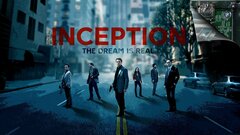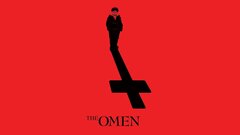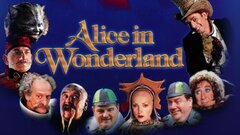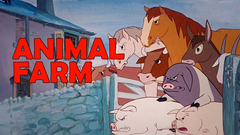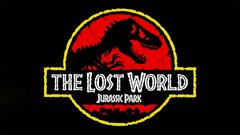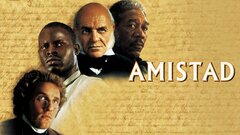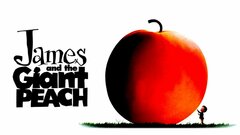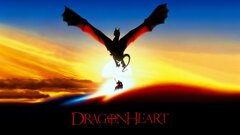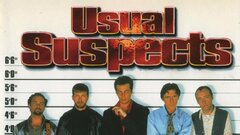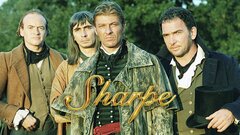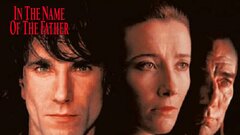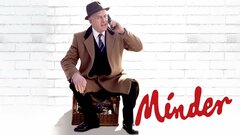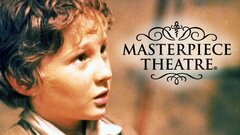Stage-trained actor Pete Postlethwaite started out in movies largely playing the heavy, trading on the natural menace inherent in his angular face. Though he made his film debut in the late 1970s, Postlewaite came into prominence a decade later thanks to a riveting performance as an abusive, alcoholic father in "Distant Voices, Still Lives" (1988). He soon broke into Hollywood with turns in Mel Gibson's "Hamlet" (1990) and "Alien 3" (1992), while joining old friend and repertory mate Daniel Day-Lewis in "The Last of the Mohicans" (1992).
But it was his incredible supporting performance as a quiet, but fiercely devoted father opposite Day-Lewis in "In the Name of the Father" (1993), which marked one of Postlewaite's finest performances of his career. He followed with an iconic turn as the mysterious lawyer to feared crime figure Keyser Söze in the acclaimed crime thriller, "The Usual Suspects" (1995). Because of those two key roles, doors were opened to Postlewaite, who began enjoying greater prominence in major feature films like "Amistad" (1997) and "The Lost World: Jurassic Park" (1997), while continuing to film acclaimed British-made movies such as "Brassed Off" (1996). By the time he landed supporting roles in "Inception" (2010) and "The Town" (2010), Postlewaite had become one of the most sought-after character actors working in the business.
Born on Feb. 7, 1945 in Warrington, Cheshire, England, Postlethwaite was raised in a working-class Catholic home by his father, Bill, a cooper and school caretaker, and his mother, Mary. Though he enjoyed performing in plays as a youngster, Postlethwaite instead studied physical education at St. Mary's Seminary in London, though he did have a minor in drama. After his training at St. Mary's, he taught drama at a Catholic girls' school, only to become disillusioned with the church. He auditioned for the Bristol Old Vic Theatre School and was accepted, but lacked the funds to attend.
Instead, Postlethwaite took a job as a sheet metal worker and welder, making beer kegs on the night shift at a factory. Eventually, he made it into the Old Vic, though he was several years older than his other classmates. From there, Postlethwaite performed in repertory at the Manchester Royal Exchange, the Old Vic, and the Everyman Theatre in Liverpool. After an early film appearance in a small role for Ridley Scott's "The Duellists" (1978), he was featured in a televised performance of Alan Bennett's play, "Afternoon Off" (ITV, 1979), which marked his small screen debut.
In 1979, Postlethwaite met a young actor by the name of Daniel Day-Lewis, a student at the Old Vic who served as his understudy for the role of Ulysses in a production of Shakespeare's "Troilus and Cressida." Postlethwaite also directed Day-Lewis in Mike Stout's play, "Funny Peculiar," before he (Postlethwaite) went off and joined the Royal Shakespeare Company, where he essayed the roles of Hastings in "Richard III" (1984-85), Macduff and Banquo in "Macbeth," and Bottom in "A Midsummer Night's Dream." Meanwhile, he had his first film role of note as a butcher in the satirical comedy, "A Private Function" (1984), starring Michael Palin and Maggie Smith.
After leaving the Royal Shakespeare Company in 1987, Postlethwaite made an indelible cinematic impression as the brutal alcoholic father in "Distant Voices, Still Lives" (1988), Terence Davies' powerful slice of post-war working-class life in Liverpool. Though small, gaunt and rather frail, his character terrorizes his family with his unpredictable rages while also surprising them with occasional tenderness. Postlethwaite's powerful performance earned the 40-year-old actor his first widespread recognition, though many in his own country were still unable to recognize his name or connect the performer they had seen on television to the role.
Postlethwaite followed up "Distant Voices" with parts in movies like "To Kill a Priest" (1988); Franco Zeffirelli's "Hamlet" (1990), starring Mel Gibson as the Melancholy Dane; and "Alien3" (1992), which marked his first blockbuster Hollywood movie. He next reunited with Day-Lewis for "The Last of the Mohicans" (1992), director Michael Mann's historical romantic drama about the adopted son of a Mohican tribe (Day-Lewis) falling in love with the daughter (Madeline Stowe) of an English officer (Maurice Roëves) during the French and Indian War. Postlethwaite had a small role as one of the British officers.
It was Day-Lewis who helped Postlethwaite secure the powerful, star-making supporting turn as Guiseppe Conlon in Jim Sheridan's powerful drama, "In the Name of the Father" (1993). As the father of Day-Lewis' Gerry Conlon, a ne'er-do-well falsely accused of being the ringleader of alleged IRA terrorists, Postlethwaite brought a quiet strength to a peaceful man who stood in dignified counterpoint to The Troubles that surrounded him. Postlethwaite's magnificent performance that served as the anguished heart of a turbulent film earned him an Academy Award nomination for Best Supporting Actor.
Since his breakout performance in "In the Name of the Father," Postlethwaite suddenly became one of the busiest actors working in Hollywood. Not only was he racking up credits, he was also delivering quality work time and again. His most notable performance post-"Father" was as the mysterious Kobayashi, the attorney and handler for the almost mythical crime boss, Keyser Söze, in Bryan Singer's excellent neo-noir "The Usual Suspects" (1995). Kobayashi gathers together five misfit criminals (Gabriel Byrne, Stephen Baldwin, Benicio del Toro, Kevin Pollack and Kevin Spacey) to pull off a seemingly suicidal heist for Söze,
Postlethwaite next co-starred opposite Ewan McGregor in the feel-good British dramedy, "Brassed Off" (1996), playing a retired miner in poor health tasked with conducting a brass band in a national competition. He managed to reach the MTV crowd with his saintly Father Laurence in Baz Lurhmann's modern take on "William Shakespeare's Romeo + Juliet" (1996), while increasing his exposure as a mysterious Old Man bearing a magical gift in the live-action portion of the stop-motion animated "James and the Giant Peach" (1996), and as monk and aspiring poet Brother Gilbert in "Dragonheart" (1996).
Postlethwaite saw his profile rise even further after joining forces with Steven Spielberg on two of the director's late-century movies, playing the English philosopher-hunter in "The Lost World: Jurassic Park" (1997) while eliciting a gemlike turn as the head prosecutor in the powerful "Amistad" (1997). His craggy face and colossal cheekbones not withstanding, he bared all - body as well as soul - for his first romantic role in "Among Giants" (1999), starring opposite Rachel Griffiths. Turning to the small screen, Postlethwaite began acting in a number of American-made television movies, portraying the Carpenter opposite Peter Ustinov's Walrus in "Alice in Wonderland" (NBC, 1999) and Farmer Jones in the live-action animatronic adaptation of "Animal Farm" (TNT, 1999).
Based on the true-life story of Irish investigative reporter, Veronica Guerin, he returned to the big screen in "When the Sky Falls" (2000), playing a criminal insider who feeds information to a journalist (Joan Allen) investigating corruption and drug trafficking in Dublin. In the Irish fable, "Rat" (2001), he played a husband more in love with Guinness and betting on horses than his own wife (Imelda Staunton), who is suddenly turned into a small ugly rodent in desperate need of love and attention.
In "The Shipping News" (2001), Postlethwaite played the crusty editor of The Gammy Bird, a Newfoundland newspaper that hires a down-and-out reporter (Kevin Spacey) returned to his ancestral home on a journey of self-discovery. Also that year he had a stage hit in Dublin with the one-person show "Scaramouche Jones," which he recreated at the Bristol Old Vic in 2002 before embarking on tour of Great Britain. For "Between Strangers" (2002), Postlethwaite was confined to a wheelchair, playing a former star athlete trapped in a bitter marriage to a drab Italian woman (Sophia Loren). In "Triggermen" (2003), a crime-comedy using the tired cliché of small-time crooks being mistaken for hit men, he appeared as a gangland boss targeted for murder. He next played an auditor suspicious of two old-timers (Paul Hogan and Michael Caton) feigning to be a same-sex couple on their tax returns in the stereotype-laden comedy, "Strange Bedfellows" (2004).
After a skilled turn as the lurking superintendent of a haunted building on New York City's Roosevelt Island in "Dark Water" (2005), Postlethwaite played a mysterious man tracked down by a diplomat (Ralph Fiennes) whose wife (Rachel Wiesz) is murdered after discovering massive corruption between the Kenyan government and the pharmaceutical industry in the compelling paranoid thriller, "The Constant Gardener" (2005).
Postlethwaite continued his busy career with a supporting role in director John Moore's remake of "The Omen" (2006), playing a Catholic priest with particular knowledge about the birth of a young boy (Seamus Davey-Fitzpatrick) who turns out to be the spawn of Satan himself. Taking a rare turn back into television, he had a recurring role on the acclaimed British drama series, "Criminal Justice" (BBC, 2008- ), before returning to features by starring in "The Age of Stupid" (2009), an experimental drama set in 2055 in which the actor played a lone man stuck in world devastated by global warming who checks news footage from 2007 and wonders why mankind did nothing to fix the problem.
Following a minor part in the effects-laden "Clash of the Titans" (2010), Postlethwaite had a small, but pivotal role in Christopher Nolan's groundbreaking thriller, "Inception" (2010), playing the dying head of a business empire whose son and heir (Cillian Murphy) becomes the target of a espionage team lead by a professional thief (Leonardo DiCaprio) intent on implanting a powerful suggestion in the son's mind. Continuing to appear in that year's most critically acclaimed films, Postlethwaite was Fergie the Florist, a Boston crime boss in Ben Affleck's heralded crime saga, "The Town" (2010). During a prolific year filled with several strong films, the actor was quietly battling cancer. He passed away on Jan. 2, 2011 at the age of 64, surrounded by his family in Shropshire, England.


